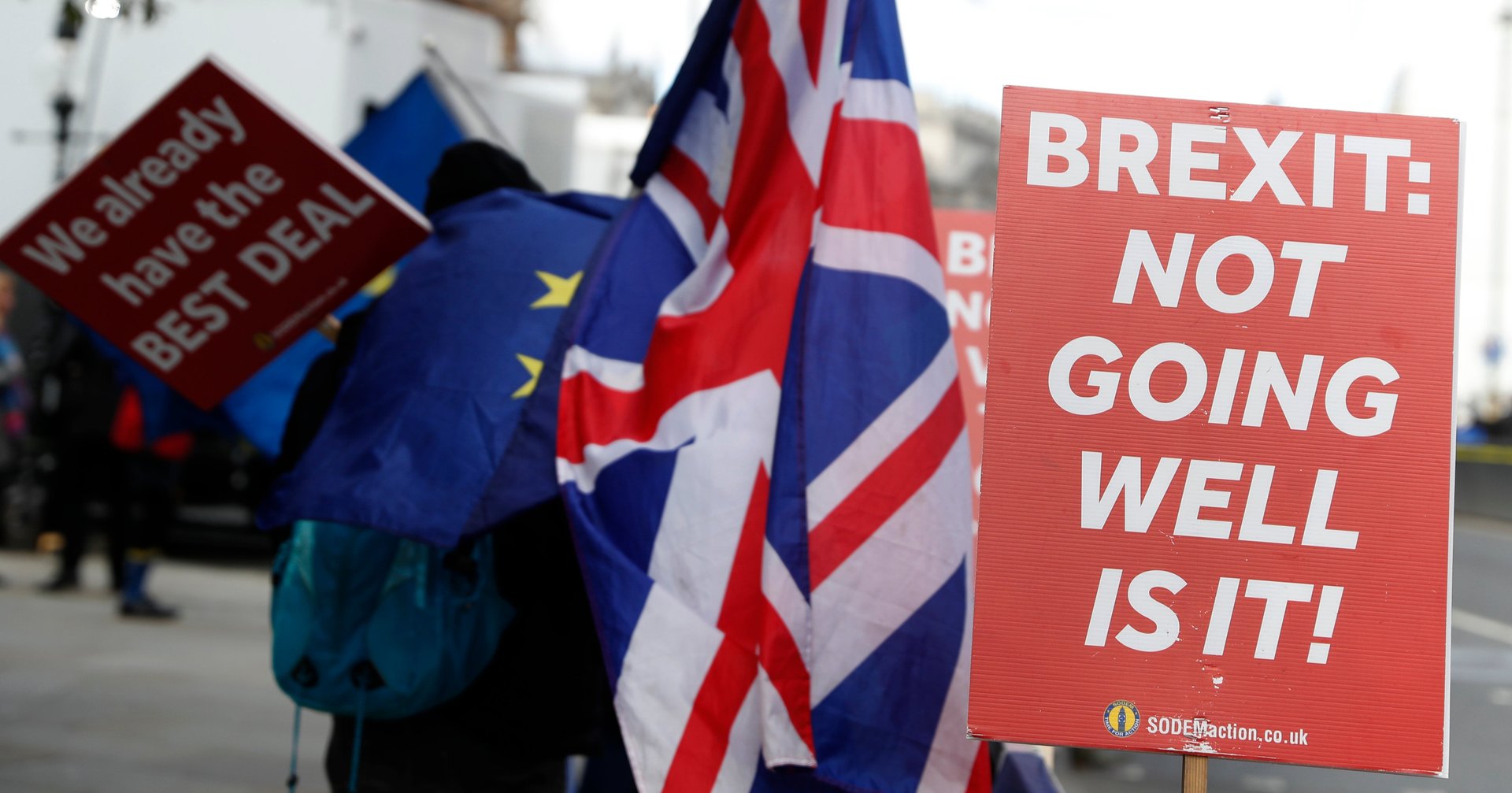Brexit has become a mental health issue
Brexit has been a political headache. For some, it’s also become a mental health ordeal. The Guardian last week reported that British farmers have increasingly reached out to crisis networks over the economic implications of Brexit and the impact bad weather has already had on their livelihoods.


Brexit has been a political headache. For some, it’s also become a mental health ordeal. The Guardian last week reported that British farmers have increasingly reached out to crisis networks over the economic implications of Brexit and the impact bad weather has already had on their livelihoods.
“I’ve had many worrying telephone calls just in the last two or three weeks from farmers who want to give up, and who are on suicide watch. But what I fear most is those who do not telephone you,” Alistair Mackintosh, of the National Farmers’ Union, told the newspaper.
Farmers rely on trade with the EU as well as the bloc’s generous subsidies for their income. They’re just one of the many industries that have been in limbo as they await the final terms of the UK’s departure from the EU. Many would likely be hit hard by a “no-deal” Brexit, in which Britain leaves the EU without any transitional arrangements to smooth the separation.
This has become an increasingly likely prospect after the UK parliament twice voted down the withdrawal agreement negotiated by prime minister Theresa May. MPs also this week voted for May to request a delay to the March 29 date when the UK is scheduled to depart the EU, a sign the Brexit limbo could be extended by months, or even years. However, if such a delay is not approved by the EU, a “no-deal” Brexit becomes the default option.
The UK government estimates exiting without a deal will put a big dent in British GDP growth (membership) over the next 15 years. Even if lawmakers back May’s deal, GDP will also take a hit, although by a more modest amount.
Hamira Riaz, a clinical psychologist based in the UK, says it’s not surprising that the uncertainty over Brexit is weighing on mental health. If “you suddenly find that decisions that are made on a national level are impacting your material security, that is definitely going to be a significant negative life event,” she explains. “And we know that people facing significant negative life events can tip over into mental health issues—such as depression and anxiety.”
An article published in the London School of Economic’s Economica journal last month examined the extent of this impact. Researchers looked at a dataset of 35,000 people in the UK’s Household Survey and found a statistically significant impact on mental distress since the 2016 EU referendum. People who voted to remain in the EU reported heightened mental distress—from trouble concentrating to unhappiness, depression, and feelings of worthlessness—since the Brexit vote. (Those who voted to leave, meanwhile, reported a bump in life satisfaction following the vote.)
Some EU nationals who live in the UK are also finding Brexit an emotional strain. Around 3.5 million citizens from elsewhere in the EU call the UK home, and while the government has pledged to allow them to stay after Brexit, it has the power to reverse course. Concerns about how welcome they now feel in the UK (pdf) has left some feeling unmoored.
The In Limbo project, which was launched to give EU citizens a platform to discuss Brexit, has reported an uptick in comments expressing anxiety on the group’s closed Facebook discussion page. “When you are faced with uncertainty, and a prolonged uncertainty, it just becomes normal to start feeling worried,” says Elena Remigi, the group’s founder.
The UK’s National Health Service could find itself less able to address mental health issues in the near future. An NHS briefing (pdf) last year said Brexit’s impact on mental health services would be “far reaching,” in part because of the risks it poses to the supply of workers. About 165,000 NHS employees are EU nationals, and while those that are already in the UK can apply to stay, domestic recruitment alone won’t be able to meet future staffing needs.
This story was updated with the outcome of recent UK parliament votes on Brexit.